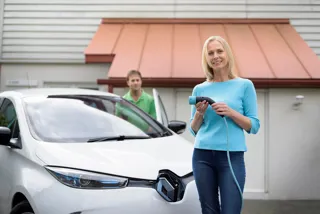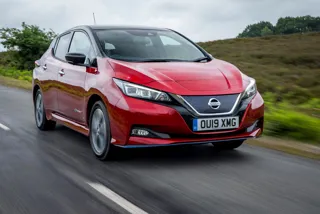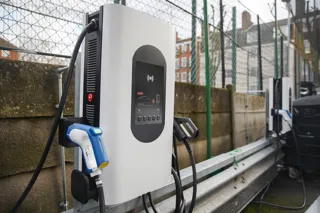National Grid has estimated that 80% of electric vehicle drivers will use smart charging by 2050 and this will help balance almost half of the UK's energy demands brought on by the move to zero emissions driving.
The estimates are from National Grid’s latest Future Energy Scenarios (FES) report, which has outlined four potential scenarios for the future of energy demand over the next 30 years based on input from 600 industry stakeholders.
Three of the four FES scenarios modelled show Great Britain reaching net zero carbon emissions by 2050 or earlier, but make clear this requires immediate action across all key technologies and policy areas, with fundamental changes for energy consumers, particularly in transport, heating and energy efficiency.
It’s estimated there will be over 11 million electric vehicles on British roads by 2030 (and over 30m by 2040) in the most stretching net zero scenarios.
National Grid estimates that around 45% of homes will actively help to balance the grid, offering up to 38GW of flexible electricity to help manage peaks and fill troughs in demand.
Smart changing means EV owners can plug in their vehicles and a management system will top up the vehicle at times that will be most beneficial to manage energy demand.
It also allows drivers and fleet operators to manage their charging stations remotely, implement new features automatically and gather data about how chargers are being used and by whom.
It has been suggested that smart EV charging could have saved the National Grid up to £133 million during the lockdown period.
Mark Herring, National Grid head of strategy, said: “This year’s Future Energy Scenarios paint an exciting picture of net zero Britain with electricity playing a crucial role in meeting the 2050 emissions targets.
“There is a widespread uptake in domestic electric vehicles, and growth and investment in hydrogen and carbon capture technologies too.
“Our new analysis of the level of societal change needed to achieve net zero also shows that consumers need greater understanding of how their energy use impacts the wider system, and how changes to their lifestyle have an impact on net zero ambitions.
“While COVID19 came too late to be factored in to this year’s analysis many of the areas highlighted will be crucial in a green recovery from the pandemic, particularly improving energy efficiency across all sectors and significant investment in low carbon electricity generation.”
EVs crucial for green recovery
Tanya Sinclair, ChargePoint policy director - UK & Ireland, said that to meet those National Grid estimates by 2050, smart charging technology needs to be implemented at scale
Sinclair said: "Smart charging and networked solutions is are, therefore, key to ensuring the UK's power grid is prepared for EVs.
"Smart chargers allow the for the mass charging of vehicles by monitoring and both actively and passively managing spikes in demand.
"EVs are crucial to the UK's green recovery but EV charging infrastructure is often only an afterthought.
"EV charging needs to be recognised as part of the UK’s Critical National Infrastructure and increased Government investment is needed to ensure the UK is prepared for the increasing pressure being placed on the grid."
Charge point provider Pod Point has raised concerns about whether consumers will be interested enough in the future to help grid capacity as a part of their EV motoring.
James McKemey, head of insights at Pod Point, said: “Despite the savings from time of use tariffs, our data indicates that it’s the minority of drivers taking advantage and charging outside of the early evening peak period.
"While consumers now have more reason to be engaged, there seems to be a significant cohort happy to just plug in and pay their standard tariffs.
“While adaptive pricing undoubtedly incentivises a good number of customers to move their consumption, we remain concerned about clusters of disengaged customers from a grid protection perspective.”
Ogem to secure energy capacity to meet EV demand
Meanwhile energy regulator Ofgem has announced proposals to unlock investment and secure the capacity to support those 11 million electric vehicles projected to be on the road within the next decade.
Ogem said a system wide ‘net zero’ fund - proposed in its recently published draft determinations for the transmission and gas distribution sectors - will unlock "significant, potentially unlimited, additional funding" to drive green infrastructure upgrades.
This could fund for co-ordinated upgrades to the transmission and distribution power grids to enable a nation-wide charging network for EVs.
onathan Brearley, Ofgem chief executive, said: "Our proposals will help turn Britain’s streets green, putting in place the wires and technology for families to travel in EVs and heat their homes and businesses with clean energy.
“The green energy transformation is not just about putting more copper in the ground. We need a modern, digital grid that uses all our energy assets as efficiently as possible.
“Local electricity networks will be at the forefront of eliminating harmful carbon emissions from the country, helping tackle climate change, so it’s vital they have the investment they need to do this whilst keeping costs as low as possible for consumers.”























Login to comment
Comments
No comments have been made yet.